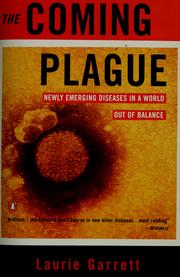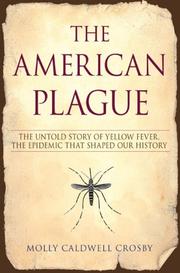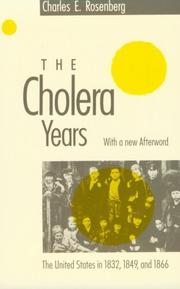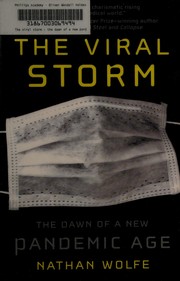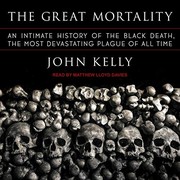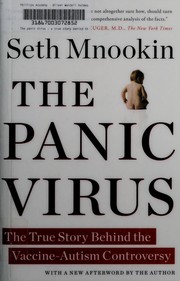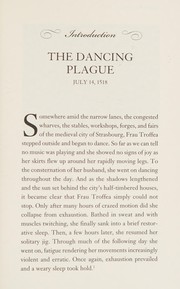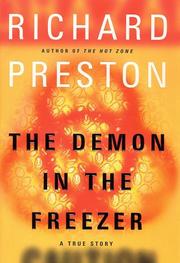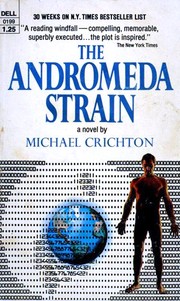Are you a bookworm with a fascination for medical history and pandemics? Look no further! Dive into the gripping world of epidemics with our curated list of the 20 best books on epidemics. From the Black Death to the Spanish Flu, these epidemics books will transport you through time and space, exploring the devastating impact of infectious diseases on humanity. Whether you’re a history buff, a science enthusiast, or simply love a good page-turner, these books on epidemics are sure to captivate and educate. Get ready to be engrossed in the fascinating and often terrifying world of infectious diseases with these compelling reads.
Contents
- 1 20 Best Epidemics Books
- 2 The Great Influenza
- 3 Spillover: Animal Infections and the Next Human Pandemic
- 4 The Hot Zone
- 5 Pale Rider: The Spanish Flu of 1918 and How It Changed the World
- 6 The Ghost Map
- 7 The Pandemic Century: One Hundred Years of Panic, Hysteria, and Hubris
- 8 The Coming Plague: Newly Emerging Diseases in a World Out of Balance
- 9 The American Plague: The Untold Story of Yellow Fever, the Epidemic That Shaped Our History
- 10 The Cholera Years: The United States in 1832, 1849, and 1866
- 11 The Fever: How Malaria Has Ruled Humankind for 500,000 Years
- 12 The End of Epidemics: The Looming Threat to Humanity and How to Stop It
- 13 The Viral Storm: The Dawn of a New Pandemic Age
- 14 The Great Mortality: An Intimate History of the Black Death, the Most Devastating Plague of All Time
- 15 The Panic Virus: A True Story of Medicine, Science, and Fear
- 16 The Dancing Plague: The Strange, True Story of an Extraordinary Illness
- 17 The Malaria Capers: Tales of Parasites and People
- 18 The Demon in the Freezer
- 19 The Biology of Doom: The History of America’s Secret Germ Warfare Project
- 20 The Plague
- 21 The Andromeda Strain
- 22 Final Thoughts on Best Epidemics Books
- 23
20 Best Epidemics Books
The Great Influenza
by John M. Barry
The Great Influenza by John M. Barry is a compelling book on epidemics that delves into the history of the 1918 influenza pandemic, which claimed the lives of millions of people worldwide. Barry’s thorough research and engaging storytelling bring to life the scientific, political, and social factors that contributed to the spread and impact of the deadly virus. Through vivid descriptions and meticulous detail, the book about epidemics paints a vivid picture of the chaos and devastation caused by the outbreak, as well as the heroic efforts of medical professionals and researchers who worked tirelessly to combat the disease. Barry’s exploration of the influenza epidemic serves as a poignant reminder of the fragility of human existence and the importance of preparedness in the face of infectious diseases. This epidemics book is a must-read for anyone interested in the history of medicine, public health, and the human experience during times of crisis.
Spillover: Animal Infections and the Next Human Pandemic
by David Quammen
Spillover: Animal Infections and the Next Human Pandemic by David Quammen is a gripping exploration of the intricate and often unnerving connections between human health and the animal kingdom. In this compelling book about epidemics, Quammen delves into the origins of deadly viruses such as Ebola, SARS, and HIV, shedding light on how these diseases have made the leap from animals to humans. Through captivating storytelling and rigorous scientific research, the author unravels the complex web of factors that contribute to the epidemics and pandemics that threaten global health.
Quammen’s narrative is both enlightening and unsettling, as he uncovers the potential for future outbreaks and the ways in which human activities impact the spread of infectious diseases. With a keen eye for detail and a gift for making complex scientific concepts accessible, Spillover is a must-read for anyone interested in understanding the dynamics of epidemics and the looming threats to public health.
The Hot Zone
by Richard Preston
The Hot Zone by Richard Preston is a gripping non-fiction book about epidemics that will keep you on the edge of your seat. The book delves into the terrifying world of highly contagious viruses and the scientists who risk their lives to study and contain them. The story revolves around the outbreak of a deadly Ebola virus in a research facility in the United States and the race against time to prevent a global pandemic.
Preston’s writing style is both informative and suspenseful, drawing readers into the heart of the epidemic and painting a vivid picture of the chaos and fear that surrounds it. The book is filled with fascinating scientific details and personal accounts, making it a compelling read for anyone interested in the science of infectious diseases. The Hot Zone is a must-read for anyone who enjoys a thrilling true story and wants to learn more about the real-life dangers of epidemics.
Pale Rider: The Spanish Flu of 1918 and How It Changed the World
by Laura Spinney
Pale Rider: The Spanish Flu of 1918 and How It Changed the World by Laura Spinney is a captivating book about epidemics that delves into the devastating impact of the Spanish flu pandemic. Spinney skillfully weaves together scientific research, historical accounts, and personal stories to paint a vivid picture of this global catastrophe that claimed millions of lives.
The book explores how the Spanish flu outbreak not only caused widespread death and suffering but also had far-reaching social, political, and economic consequences. Spinney skillfully examines how the pandemic reshaped the world in the aftermath, influencing public health policies, medical practices, and even political dynamics.
With a keen eye for detail and a compelling narrative, Spinney brings to life the events of 1918 and their profound effects on societies across the globe. Pale Rider is a thought-provoking and insightful epidemics book that offers valuable lessons for understanding and preparing for future global health crises.
The Ghost Map
by Steven Johnson
The Ghost Map by Steven Johnson is a captivating book about epidemics that tells the gripping story of the 1854 cholera outbreak in London. Johnson masterfully weaves together history, science, and urban planning to provide a fascinating account of how a deadly disease spurred a revolution in public health. The book follows the efforts of Dr. John Snow and Reverend Henry Whitehead as they race against time to trace the source of the outbreak and convince the authorities of their findings. Johnson skillfully brings to life the streets of Victorian London and the lives of its inhabitants, drawing readers into a world of fear, uncertainty, and scientific discovery. The Ghost Map is a gripping narrative that sheds light on the devastating impact of epidemics and the triumph of human ingenuity in the face of adversity. Johnson’s vivid storytelling and meticulous research make this book about epidemics a must-read for anyone interested in history, public health, or the human capacity for resilience.
The Pandemic Century: One Hundred Years of Panic, Hysteria, and Hubris
by Mark Honigsbaum
The Pandemic Century by Mark Honigsbaum is a compelling book about epidemics, offering a gripping account of one hundred years of panic, hysteria, and hubris in the face of infectious diseases. Honigsbaum takes readers on a journey through some of the most devastating outbreaks in history, from the Spanish flu to SARS and Ebola.
Through meticulous research and vivid storytelling, the author delves into the social, political, and scientific responses to these epidemics, shedding light on the patterns of fear and overconfidence that have characterized our approach to infectious diseases over the past century. Honigsbaum’s exploration of the intersection between public health, politics, and human behavior makes for a fascinating and timely read, especially in light of the current global health crisis.
With its blend of historical analysis and gripping narratives, The Pandemic Century is a must-read for anyone interested in the impact of epidemics on society and the lessons we can learn from our past experiences.
The Coming Plague: Newly Emerging Diseases in a World Out of Balance
by Laurie Garrett
The Coming Plague: Newly Emerging Diseases in a World Out of Balance by Laurie Garrett is a groundbreaking book on epidemics that explores the terrifying reality of emerging diseases and their potential to wreak havoc on a global scale. Garrett’s compelling narrative takes readers on a journey through the history of epidemics, from the Black Death to more recent outbreaks like HIV/AIDS and Ebola.
With meticulous research and captivating storytelling, the book sheds light on the interconnected factors that contribute to the rise of new diseases, including urbanization, global travel, and environmental degradation. Garrett’s insightful analysis delves into the social, political, and economic implications of epidemics, making a compelling case for the urgent need for global cooperation in disease surveillance and response.
The Coming Plague is a sobering yet enlightening read that offers a comprehensive understanding of the complex dynamics at play in the world of infectious diseases. It is a must-read for anyone interested in public health, epidemiology, and the societal impact of epidemics.
The American Plague: The Untold Story of Yellow Fever, the Epidemic That Shaped Our History
by Molly Caldwell Crosby
The American Plague: The Untold Story of Yellow Fever, the Epidemic That Shaped Our History by Molly Caldwell Crosby is a gripping book on epidemics that delves into the devastating impact of yellow fever on American history. Crosby skillfully unravels the untold story of how yellow fever epidemics ravaged the southern United States, shaping the course of the nation’s development and leaving a lasting legacy on public health.
Through meticulous research and vivid storytelling, Crosby brings to life the terror and chaos that engulfed communities as they grappled with the deadly disease. She also sheds light on the pivotal role of medical pioneers and unsung heroes who fought tirelessly to combat the epidemic and save lives.
This epidemics book offers a compelling exploration of the intersection between science, politics, and society, making it a must-read for history enthusiasts, public health advocates, and anyone interested in understanding the profound impact of infectious diseases on human civilization.
The Cholera Years: The United States in 1832, 1849, and 1866
by Charles E. Rosenberg
The Cholera Years by Charles E. Rosenberg is a comprehensive book on epidemics that delves into the devastating impact of cholera outbreaks in the United States during the 19th century. Through vivid storytelling and meticulous research, Rosenberg examines the cholera epidemics of 1832, 1849, and 1866, shedding light on the social, political, and medical responses to these crises.
Rosenberg’s narrative skillfully captures the fear, confusion, and resilience of communities grappling with the sudden and deadly spread of the disease. He explores the ways in which these epidemics shaped public health policies, urban infrastructure, and the emerging field of epidemiology in the United States. The Cholera Years offers a compelling account of how these epidemics transformed American society and medicine, and how they continue to impact public health practices today.
Through meticulous research and engaging storytelling, The Cholera Years is a must-read for anyone interested in the history of epidemics and the profound impact of infectious diseases on society.
The Fever: How Malaria Has Ruled Humankind for 500,000 Years
by Sonia Shah
The Fever: How Malaria Has Ruled Humankind for 500,000 Years by Sonia Shah is a captivating exploration of the history and impact of one of the world’s most ancient and persistent diseases. Shah delves into the fascinating and often overlooked story of malaria, tracing its origins and its enduring influence on human society for thousands of years. Through meticulous research and compelling storytelling, she uncovers the intricate relationship between the malaria parasite and its human hosts, shedding light on the evolutionary battle that has shaped both species.
Shah’s book on epidemics offers a thought-provoking look at the ways in which malaria has shaped human genetics, societies, and even civilizations. She also examines the ongoing efforts to combat the disease, offering insights into the complex challenges of eradicating a global epidemic. The Fever is a captivating and informative read that offers a unique perspective on the impact of epidemics on human history and the ongoing struggle to control them.
The End of Epidemics: The Looming Threat to Humanity and How to Stop It
by Jonathan D. Quick
The End of Epidemics: The Looming Threat to Humanity and How to Stop It by Jonathan D. Quick is a compelling and urgent exploration of the global threat posed by infectious diseases. In this gripping book on epidemics, Dr. Quick, an expert in global health, delves into the history of pandemics, from the Spanish flu to Ebola, and reveals the potential for devastating future outbreaks. Drawing on his extensive experience working on the frontlines of disease control, Quick presents a comprehensive blueprint for preventing and controlling epidemics, offering practical solutions and strategies for individuals, communities, and governments. With a clear and accessible writing style, he emphasizes the importance of global cooperation and preparedness in the face of this critical issue. This book about epidemics is a must-read for anyone concerned about the potential impact of infectious diseases on our world, and it provides essential insights into how we can work together to avert a global health crisis.
The Viral Storm: The Dawn of a New Pandemic Age
by Nathan Wolfe
The Viral Storm: The Dawn of a New Pandemic Age by Nathan Wolfe is a gripping book on epidemics that takes readers on a fascinating journey through the world of viruses and pandemics. Wolfe, a renowned virologist, shares his firsthand experiences studying viruses in the most remote corners of the world, shedding light on the potential for new, deadly pandemics to emerge. Through captivating storytelling and scientific insight, Wolfe explores the interconnectedness of the modern world and the ways in which viruses can spread rapidly across borders, posing a significant threat to global health.
With a focus on the origins of pandemics and the critical importance of early detection and response, this book about epidemics offers a thought-provoking exploration of the ongoing battle between humans and viruses. Wolfe’s expertise and engaging narrative style make The Viral Storm a must-read for anyone interested in understanding the dynamics of infectious diseases and the challenges they present to public health. Whether you’re a science enthusiast or simply curious about the world of viruses, this epidemics book is sure to inform and captivate readers.
The Great Mortality: An Intimate History of the Black Death, the Most Devastating Plague of All Time
by John Kelly
The Great Mortality: An Intimate History of the Black Death, the Most Devastating Plague of All Time by John Kelly is a gripping book about epidemics that delves into the horrifying impact of the Black Death. Kelly provides a detailed and immersive account of the epidemic, taking readers on a journey through the 14th century as the plague ravaged Europe, Asia, and Africa. Through vivid storytelling and meticulous research, the author paints a vivid picture of the social, economic, and cultural upheaval caused by the deadliest pandemic in human history.
Readers will be captivated by Kelly’s exploration of the personal stories of those who lived through the Black Death, as well as the medical and scientific understanding of the time. This epidemics book offers a compelling look at how the plague reshaped the course of history and continues to resonate in our understanding of public health and disease prevention. The Great Mortality is a must-read for anyone interested in the impact of pandemics and the resilience of humanity in the face of devastating diseases.
The Panic Virus: A True Story of Medicine, Science, and Fear
by Seth Mnookin
The Panic Virus: A True Story of Medicine, Science, and Fear by Seth Mnookin is a gripping exploration of the interplay between medicine, science, and public fear. Mnookin delves into the world of epidemics, dissecting the controversial debate over childhood vaccinations and the rise of the anti-vaccine movement. With meticulous research and compelling storytelling, the book unravels the complex web of misinformation, fear, and skepticism surrounding vaccines, shedding light on the consequences of widespread panic and misinformation.
Through in-depth interviews and thorough investigation, Mnookin presents a riveting narrative that examines the intersection of science and public opinion. The Panic Virus is a thought-provoking and timely book that offers valuable insights into the challenges of combating misinformation and fear in the field of public health. This book about epidemics is a must-read for anyone interested in understanding the dynamics of vaccine hesitancy and the impact of fear on public health.
The Dancing Plague: The Strange, True Story of an Extraordinary Illness
by John Waller
The Dancing Plague: The Strange, True Story of an Extraordinary Illness by John Waller is a fascinating book about epidemics. It delves into the inexplicable phenomenon of the dancing plague that swept through the town of Strasbourg in 1518. The book explores the historical and medical context of this bizarre event, shedding light on the social, psychological, and physiological factors that may have contributed to the outbreak.
John Waller’s compelling narrative provides a vivid portrayal of the hysteria and mass hysteria that gripped the townspeople, leading them to uncontrollably dance for days on end. Through meticulous research and captivating storytelling, Waller offers an insightful exploration of this perplexing epidemics book and its implications for our understanding of mass psychogenic illness.
Readers will be engrossed by the peculiar details and gripping accounts of this extraordinary and enigmatic book on epidemics, making it a must-read for anyone intrigued by the intersection of history, psychology, and medicine.
The Malaria Capers: Tales of Parasites and People
by Robert S. Desowitz
The Malaria Capers: Tales of Parasites and People by Robert S. Desowitz is a fascinating book about epidemics that takes readers on a captivating journey through the history and impact of malaria. Desowitz, a renowned microbiologist and writer, skillfully weaves together scientific research, historical accounts, and personal anecdotes to shed light on the complex relationship between parasites and humans. Through engaging storytelling, he explores the devastating effects of malaria on various societies and the tireless efforts of scientists and medical professionals to understand and combat the disease.
Desowitz’s compelling narrative not only delves into the science behind epidemics, but also highlights the social, political, and economic factors that have shaped the spread and control of malaria. The book on epidemics provides a thought-provoking and informative look at the intersection of health, culture, and human resilience in the face of a persistent global health challenge. Whether you’re a science enthusiast or simply intrigued by the human experience, The Malaria Capers offers a captivating exploration of a disease that has profoundly shaped the course of history.
The Demon in the Freezer
by Richard Preston
The Demon in the Freezer by Richard Preston is a gripping non-fiction book about the terrifying world of bioterrorism and the smallpox virus. Written with the intensity of a thriller, the book delves into the history of smallpox, the only disease to have been eradicated from the planet, and the potential threat of its re-emergence as a biological weapon. Preston explores the race against time to contain the virus and the real-life heroes who risk their lives to protect the world from a potential epidemic.
Through vivid storytelling and meticulous research, the author sheds light on the dangers of bioterrorism and the intricate science behind the smallpox virus. The book is a chilling reminder of the constant threat of deadly diseases and the crucial role of science and public health in combating them. The Demon in the Freezer is a must-read for anyone interested in the history of epidemics, the science of virology, and the ongoing battle against infectious diseases.
The Biology of Doom: The History of America’s Secret Germ Warfare Project
by Ed Regis
The Biology of Doom: The History of America’s Secret Germ Warfare Project by Ed Regis is a captivating and chilling exploration of the United States’ covert research into biological warfare. This gripping book on epidemics delves into the secretive and morally dubious world of germ warfare, revealing the shocking truths behind America’s involvement in this deadly field. Ed Regis takes readers on a journey through the history of the U.S. germ warfare program, uncovering the disturbing experiments and unethical practices that were carried out in the name of national security.
Regis provides a thorough examination of the scientists, military officials, and government agencies involved in this clandestine project, shedding light on the dangerous and far-reaching implications of biological weapons. The Biology of Doom is a thought-provoking and meticulously researched epidemics book that offers a sobering look at the intersection of science, politics, and ethics. With its compelling narrative and eye-opening revelations, this book about epidemics is a must-read for anyone interested in the hidden history of biological warfare.
The Plague
by Albert Camus
The Plague by Albert Camus is a powerful and thought-provoking novel that delves into the human experience when faced with a devastating epidemic. Set in the Algerian city of Oran, the story follows a group of individuals as they confront the outbreak of a mysterious and deadly disease. As the city is quarantined and the death toll rises, the characters grapple with fear, despair, and the moral dilemmas that arise in the face of such a crisis. Camus masterfully explores the psychological and philosophical implications of the epidemic, reflecting on the resilience of the human spirit and the nature of suffering. Through vivid prose and compelling storytelling, the novel offers profound insights into the human condition and the ways in which people respond to adversity. The Plague is a timeless and haunting meditation on the fragility of life and the enduring human capacity for hope and compassion.
The Andromeda Strain
by Michael Crichton
The Andromeda Strain by Michael Crichton is a thrilling book about epidemics that will keep you on the edge of your seat. The story begins with a government satellite crashing into a small town, bringing with it a deadly microorganism known as the Andromeda Strain. As the town’s inhabitants begin to die in horrific ways, a team of scientists is called in to contain the outbreak and prevent a global pandemic.
Crichton’s meticulous attention to scientific detail and his skill for creating tension make this a truly gripping read. The plot is filled with twists and turns, keeping readers guessing until the very end. The novel’s exploration of the potential dangers of scientific discovery and government secrecy remains as relevant today as when it was first published.
With its fast-paced narrative and thought-provoking themes, The Andromeda Strain is a must-read for anyone interested in epidemics books or thrilling science fiction.
Final Thoughts on Best Epidemics Books
These 20 best books about Epidemics offer a captivating and insightful look into the history, impact, and human experience of infectious diseases. From scientific explanations to personal accounts, these books provide a comprehensive understanding of how epidemics have shaped societies and individuals. Whether you’re interested in the science behind pandemics or the societal implications of outbreaks, these books offer a wealth of knowledge and perspective on the topic. Dive into these compelling reads to gain a deeper understanding of the human experience with infectious diseases.
Which book about Epidemics is best?
The best book on Epidemics can vary with personal preference, but three widely recommended titles are:
- The Great Influenza by John M. Barry,
- Spillover: Animal Infections and the Next Human Pandemic by David Quammen,
- The Hot Zone by Richard Preston.
Each offers valuable insights and could be a great starting point.
What are the best books to learn about Epidemics?
For those looking to learn about Epidemics, there is a wealth of literature that can provide a comprehensive understanding of the subject. Some of the most highly recommended books include:
- The Great Influenza by John M. Barry,
- Spillover: Animal Infections and the Next Human Pandemic by David Quammen,
- The Hot Zone by Richard Preston,
- Pale Rider: The Spanish Flu of 1918 and How It Changed the World by Laura Spinney,
- The Ghost Map by Steven Johnson,
- The Pandemic Century: One Hundred Years of Panic, Hysteria, and Hubris by Mark Honigsbaum,
- The Coming Plague: Newly Emerging Diseases in a World Out of Balance by Laurie Garrett,
- The American Plague: The Untold Story of Yellow Fever, the Epidemic That Shaped Our History by Molly Caldwell Crosby,
- The Cholera Years: The United States in 1832, 1849, and 1866 by Charles E. Rosenberg,
- The Fever: How Malaria Has Ruled Humankind for 500,000 Years by Sonia Shah
These books offer a range of perspectives on Epidemics, covering various aspects and approaches to the subject.
What are the best books about Epidemics?
The best books about Epidemics are:
- The Great Influenza by John M. Barry,
- Spillover: Animal Infections and the Next Human Pandemic by David Quammen,
- The End of Epidemics: The Looming Threat to Humanity and How to Stop It by Jonathan D. Quick,
- The Viral Storm: The Dawn of a New Pandemic Age by Nathan Wolfe,
- The American Plague: The Untold Story of Yellow Fever, the Epidemic That Shaped Our History by Molly Caldwell Crosby,
- The Pandemic Century: One Hundred Years of Panic, Hysteria, and Hubris by Mark Honigsbaum.
Each offers unique insights into the subject. While these books about Epidemics are highly regarded, it’s important to note that any list of ‘best’ books is subjective and reflects a range of opinions.
What are the best Epidemics books of all time?
Choosing the best Epidemics books of all time can vary depending on who you ask, but five titles that are often celebrated include
- The Great Influenza by John M. Barry,
- Spillover: Animal Infections and the Next Human Pandemic by David Quammen,
- The Ghost Map by Steven Johnson,
- The American Plague: The Untold Story of Yellow Fever, the Epidemic That Shaped Our History by Molly Caldwell Crosby,
- and The End of Epidemics: The Looming Threat to Humanity and How to Stop It by Jonathan D. Quick.
Each of these books has made a significant impact in the field of Epidemics and continues to be influential today.







